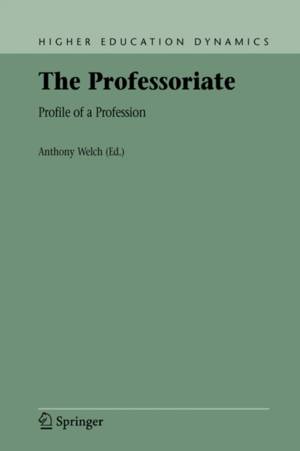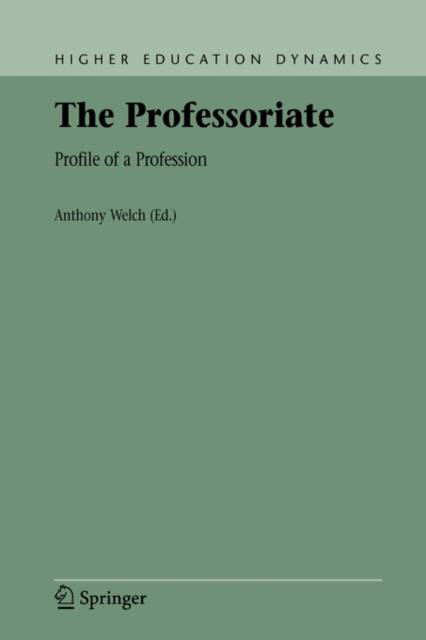
Door een staking bij bpost kan je online bestelling op dit moment iets langer onderweg zijn dan voorzien. Dringend iets nodig? Onze winkels ontvangen jou met open armen!
- Afhalen na 1 uur in een winkel met voorraad
- Gratis thuislevering in België vanaf € 30
- Ruim aanbod met 7 miljoen producten
Door een staking bij bpost kan je online bestelling op dit moment iets langer onderweg zijn dan voorzien. Dringend iets nodig? Onze winkels ontvangen jou met open armen!
- Afhalen na 1 uur in een winkel met voorraad
- Gratis thuislevering in België vanaf € 30
- Ruim aanbod met 7 miljoen producten
Zoeken
€ 153,95
+ 307 punten
Omschrijving
What does it mean to be an academic in the twenty first century? Clearly, there is no one answer to this question, as the diversity evident in the following chapters reveals. Elite research universities often tend to join with others of their kind, so that a professor from an elite US institution may well undertake a Japanese sabbatical (if at all) at the University of Tokyo, a UK semester at Oxford or Cambridge, or an Australian semester at the University of Sydney, or perhaps Melbourne. At each, they can expect to have at their disposal well-stocked libraries, replete with requisite books, journals and databases, (many now available electronically), as well as highly regarded specialist peers in their research areas, with whom they can discuss their work in detail. How can this academic lifeworld be compared with that of a member of the South East Asian professoriate, for example, or many in Latin America and Africa, where inadequate wages often necessitate taking on a second job, often at a lower quality private institution (which, however, likely offers better remuneration), and/or perhaps conducting a small business on the side (Welch 2003, Tipton, Jarvis and Welch 2003), and where the lack of basic infrastructure, as well as research training, means that teaching, and perhaps some administration, is perhaps the limit of one's activities? The story of differentiation, however, is not limited todifferences between elite institutions in OECD countries and more modest institutions elsewhere.
Specificaties
Betrokkenen
- Uitgeverij:
Inhoud
- Aantal bladzijden:
- 223
- Taal:
- Engels
- Reeks:
- Reeksnummer:
- nr. 7
Eigenschappen
- Productcode (EAN):
- 9781402033827
- Verschijningsdatum:
- 13/05/2005
- Uitvoering:
- Hardcover
- Formaat:
- Genaaid
- Afmetingen:
- 156 mm x 234 mm
- Gewicht:
- 508 g

Alleen bij Standaard Boekhandel
+ 307 punten op je klantenkaart van Standaard Boekhandel
Beoordelingen
We publiceren alleen reviews die voldoen aan de voorwaarden voor reviews. Bekijk onze voorwaarden voor reviews.










